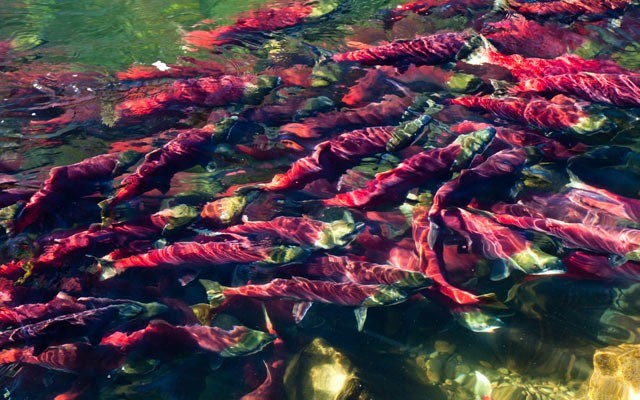Fisheries and Oceans Canada (DFO) has reversed a series of proposed cuts that stewardship groups say would have decimated British Columbia's salmon stocks.
Last month, it was revealed that DFO planned to phase out its Resource Restoration Unit over the next three years, along with two other components of its Salmonid Enhancement Program, eliminating education and technical support contracts and the production of steelhead and cutthroat trout at federal hatcheries.
On Thursday, June 15, Burnaby MP Terry Beech, parliamentary secretary to Canada's fisheries minister, said the federal government would backtrack on its proposal.
The move comes on the heels of intense criticism from conservationists across B.C. who rely on the technical expertise of the Resource Restoration Unit staff to carry out essential salmon habitat enhancement and restoration projects.
"I think it's a great decision, and it just shows when everybody comes together and makes their voice heard that we can bridge that gap between British Columbia and Ottawa," said Sea to Sky Fisheries Roundtable member Dave Brown.
The Salmonids in the Classroom program, which has for 40 years taught thousands of British Columbian students about the life cycle of salmon, was also spared.
The reversal means that four conservation projects in the Squamish River watershed that were in jeopardy will now move forward as planned, including the restoration of more than 30,000 square metres of salmon habitat on the Elaho River, northwest of Whistler.
"It means that we're going to be able to get back on track. It's a huge relief," said Edith Tobe, executive director of the Squamish River Watershed Society.
But conservationists still have lingering concerns over how the decision was made in the first place.
"We remain concerned at the lack of transparency and community engagement. Even with our own members of Parliament, it seemed that nobody was aware that these cuts were even in discussion, let alone about to be implemented," Tobe said.
"There's a very clear disconnect between Ottawa and our province, and that's a little alarming."
Sea to Sky MP Pamela Goldsmith-Jones was critical of her own party after she first learned of the proposed cuts from local media, and shared her concerns with fisheries minister Dominic LeBlanc. But she was unable to shed any light on how DFO staff arrived at the proposal.
"I don't even know that it was a decision," she said. "It was an error, it was an egregious mistake, it was oversight. It was certainly not anybody's overt decision who is accountable to the public, that's for sure."
Tobe said she has been seeking clarity on the decision-making process at DFO for months.
"There are a lot of questions we will never get the answer to," she said.
"These cuts were extraordinarily specific towards our wild salmon freshwater systems, and they felt very surgical. And I still feel there was intent behind this... Whoever it was that gave these recommendations, it looked very deliberate, is all I can say."
When pressed further, Goldsmith-Jones said she doesn't "get involved" with the inner workings of the DFO's bureaucracy, but that she would speak with LeBlanc to learn more about the decision-making at the federal agency.
"I get involved in the kind of policies that make a difference, and you saw that the staff is doing what the public, as articulated in government policy, wants to do," she added.




